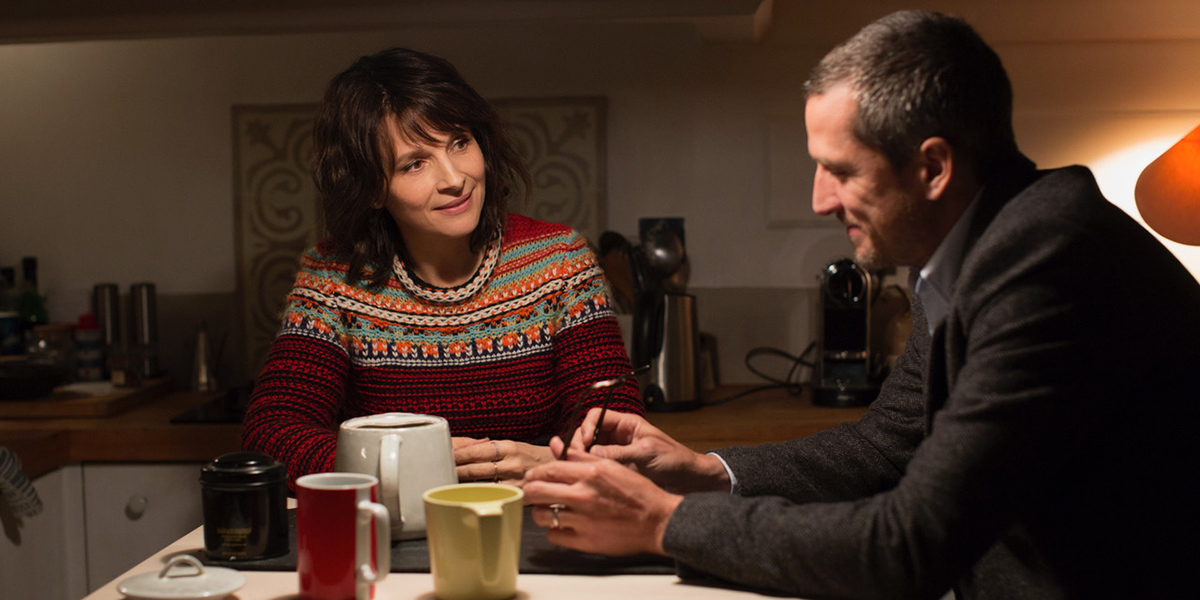Review by Zach Dennis
I was curious about this one as anything related to technological anxiety peaks my interest and Assayas is a director whose films I’m hit or miss with. On top of all that, Assayas is a 63-year-old man musing on the rise in technology so I went in a bit jaded and ready to pounce.
To my chagrin, Non-Fiction is much more nuanced than that basic assessment places it at, and Assayas is able to work both sides in a way that doesn’t feel like it is making some declarative statement on the pitfalls and enhancements of technology on the book publishing world (which is what the movie is set in), but rather how technology has opened up our lives whether we enjoy it or not.
The film follows two couples — Alain (Guillaume Canet) and Selena (Juliette Binoche), and Léonard (Vincent Macaigne) and Valérie (Nora Hamzawi) — and their dealings with affairs, technology and communication. The film has the feeling of an anthology (a point Assayas made when he was introducing the film) as we bounce between different conversations between the various characters — some intersecting, some not — about the array of topics.
Alain works as the head of a publishing house and is trying to make sense of the direction books are headed — whether digital or not — and this decision plays into him denying the latest book by Léonard, a decision that wounds him. Alain’s company has just hired a new digital director, Laure (Christa Théret), who is tasked with making the transition from print to digital better and is also the object of his affections as we discover the two are sleeping together. Selena works as an actress on a TV procedural — something that is draining her even if the pay is good — and she is coping with the idea (she doesn’t know for sure) of Alain having an affair even though she and Léonard are sleeping together and have been for some time.
It is also so very capital-F, French and that’s kind of funny, overall. But Assayas’ theories on technology are founded on the shift in how aware of everyone else we are. It’s refreshing that it isn’t a writer going “all technology is bad” or “the world is ending and everyone is tweeting it” and at least interrogates both sides of the spectrum.
At the end of all this though, the movie is less about the technology and more about how different elements seem to get in the way of conversation and how change is more of the problem over time rather than any specific factor (whether tech or what have you). It’s interesting that Assayas went in a much more obvious route after he interrogated modernity in a sense in both of his recent films — Clouds of Sils Maria and Personal Shopper — and went with a more Eric Rohmer or Richard Linklater approach.
It works, and while I don’t see Non-Fiction having the impact with people that both of those previous movies did as best of the year contenders, it was a welcome change of pace for the director as both of those films were foggy for me and their ambiguity left me a little cold. Non-Fiction forgoes all that and is a nice addition to his canon.
Ironically enough, the final movie of the festival for me also is about social media, the current culture and technology in a completely different light.

